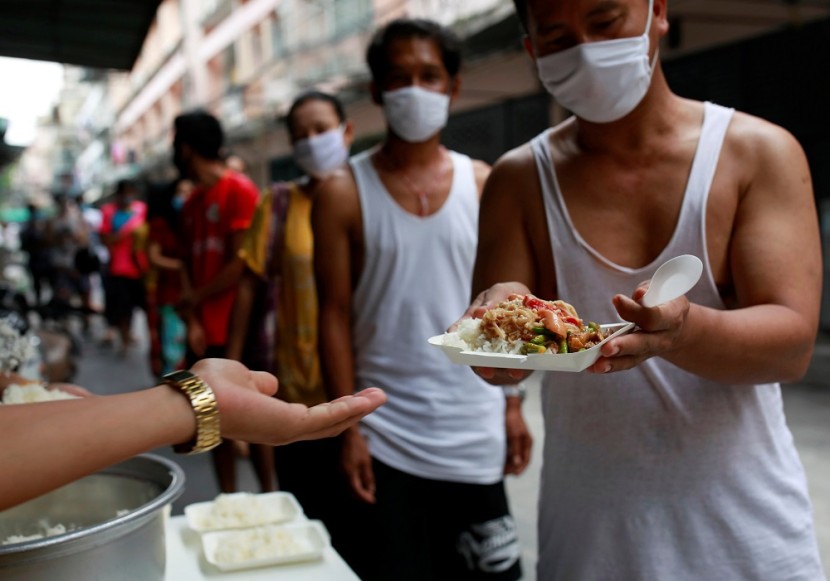
Long lines of unemployed Thailand nationals are depending on free food across Bangkok, fishing in fetid canals, and scrambling for cash handouts. They are becoming increasingly distressed as the COVID-19 pandemic jeopardizes the economy and the government grapples to respond.
The government of Thailand launched a cash handout project to alleviate the economic impact, but many people in the country said they are left out of the scheme.
At least 27 million jobless Thais have lost their job in the fields of entertainment, tourism, and food and service sectors.
Air travel is at a standstill and tens of millions of tourists are no longer entering Thailand because of the novel coronavirus, causing the economy to turn into a desert without jobs and wages.
The declaration of a state of emergency in the previous week has witnessed businesses and temples lending a hand to those in need.
Stores in Bangkok have been commanded to temporarily close between March 22 and the end of April. Merely establishments selling food and other essential necessities are allowed to operate.
Unemployed citizens have applied for the government's monthly cash handout though merely half have received approval.
Prime Minister Prayut Chan-O-Cha has also released conflicting information on the duration the state can afford to provide people 5,000 baht ($150) a month.
The situation is direr for foreign migrants since government aid is bounded to Thai workers.
Also Read : How Singapore Lost Control of COVID-19 Outbreak
While waiting for the government to supply assistance, jobless Thailand nationals are queuing up at charities for rice, milk, noodles, and curry packets.
He criticized the Thai government, "If I wait for the government's aid then I'll be dead first."
A chicken rice chain has begun offering a meal for free. The meal normally costs 65 cents.
The virtue of volunteerism has filled the loopholes left by the state.
"The government hasn't helped me with anything," according to Chare Kunwong, a 46-year-old masseur who provides service tourists -- a revenue source that dried up with the coronavirus' stranglehold on global travel.
He queued in line among hundreds on Wednesday (Apr 22) in Bangkok's historic quarter to be provided food donations of rice, milk, noodles, and curry packets.
It is surmised that Thailand's economy will suffer its worst contraction (6.5 percent) since the Asian financial crisis in 1998.
A man who is restricted to sell clothes at a market said, "I have no choice but to rely on shops like this because I have little money left."
A number of Buddhist temples are also providing meals to unemployed Thais.
Although these efforts are prevalent, concern is mounting in Thailand that more people will lose their jobs. More rigid border controls are likely to strike Thailand's tourism industry hard.
In the Pathum Thani province, an hour north of Bangkok, an increasing number of locals are fishing in a murky canal in an attempt to ease food shortages.
The tanking economy has also resulted in Thailanders hawking their gold jewelry while the price for the exquisite metal spikes across the globe.
Related Article : How Singapore Lost Control of COVID-19 Outbreak
© 2026 HNGN, All rights reserved. Do not reproduce without permission.








